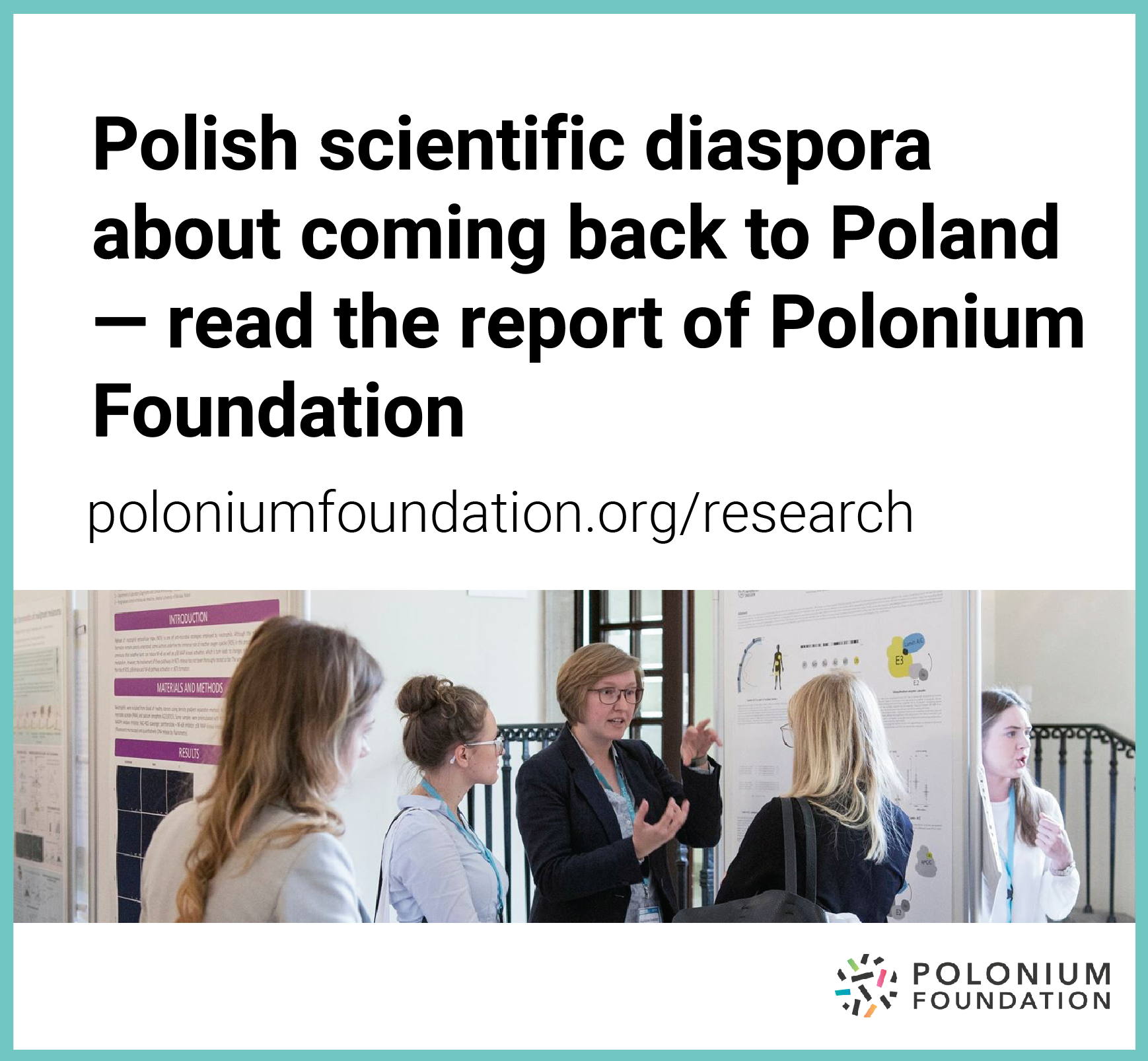Do you know that every second polish scientist working abroad does not intend to return to Poland? The return is considered by less than one-third of respondents (27 percent). Among those who want to stay abroad (47%), more than half see benefits in networking and cooperating with scientists from Poland, yet only 6% is actively looking for these contacts. The lack of cooperation between scientists results from the lack of opportunities to make contact – this is the opinion of the authors of the report, experts from the Polonium Foundation.
Between October 2017 and October 2018, Polonium experts have polled 464 Polish scientists working abroad (Polish scientific diaspora) in 31 countries, at all career stages, recent and long-term migrants. They were asked about links with the Polish scientific community abroad and in Poland, potential benefits from these contacts, as well as attitudes to return migration. The resulting study constitutes the largest snapshot of the Polish scientific diaspora in recent years.
Experts from the Polonium Foundation believe that the results obtained during the survey of the Polish scientific diaspora and presented in the form of a report testify, among others, about insufficient attempts of Polish institutions in creating opportunities for cooperation between Polish scientists in the country and abroad. As the report stresses, the national strategy of internationalization of science in Poland should not be based only on encouraging scientists to return – its important pillar should be building a network of contacts with people who do not want to come back to the country. Foundation experts point out that this type of cooperation can improve the international image of Polish research performing organisations (RPOs) and their academic achievements, as well as help Poles successfully apply for many EU grants, especially within the forthcoming Horizon Europe. This in turn, could lead to closing the research and innovation gap between EU15 and EU13.
A full report (inc. supplementary figures) can be downloaded directly via Polonium Foundation website:
https://poloniumfoundation.org/research
Sources of information:
Fundacja Polonium
Nauka w Polsce/Katarzyna Florencka
Science PR/Natalia Osica



